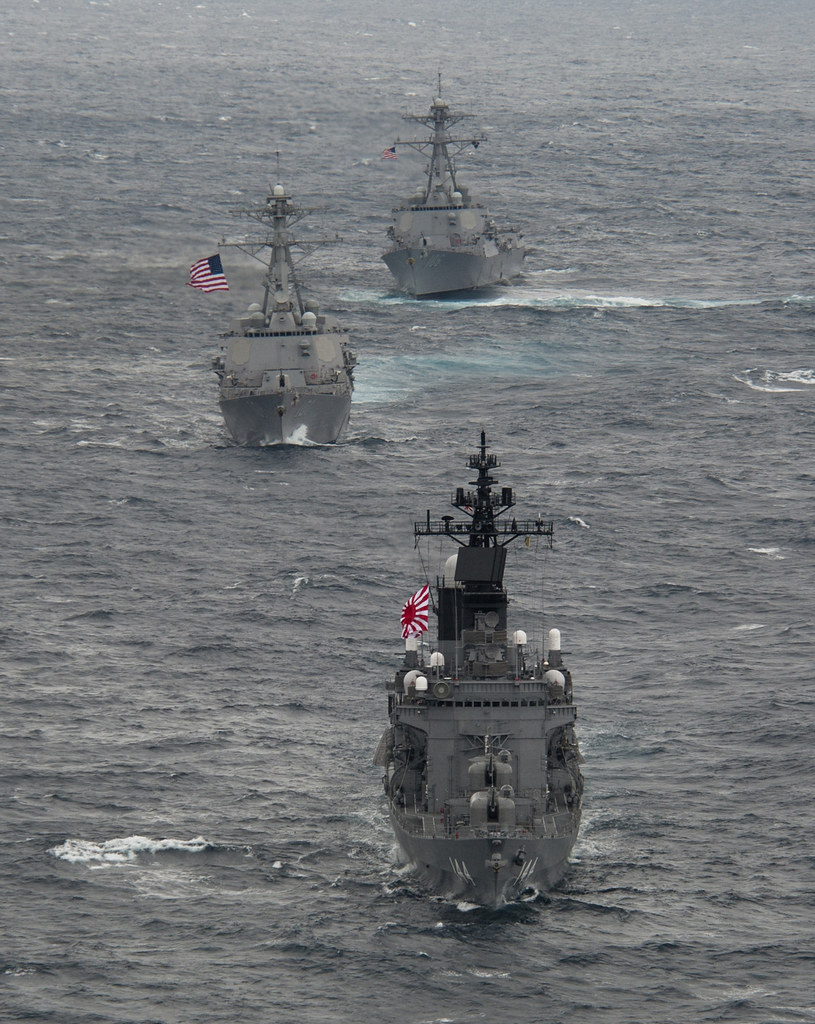 |
| Image: Official U.S. Navy Page via Flickr |
By Paul Sracic
Recent history ought to teach us the dangers of assuming a ‘slam dunk.’
The late New York Senator Daniel Patrick Moynihan once famously observed, “[P]olitics is an argument about the future, and no one knows that future.” Despite this warning, in recent weeks Jun Okumura and I have both tried our hand at predicting a future that neither of us can be confident in knowing. Still, the gravity of the event that we are both speculating about – the landing of Chinese troops on the disputed Senkaku/Diaoyu islands and the concomitant reaction of the U.S. government – is such that it needs to be discussed and debated. That is why I am grateful for Mr. Okumura’s thoughtful response to my article. Although he no longer works for the Japanese government, those in leadership positions in Japan likely share Mr. Okumura’s understandings. Therefore, if I am right and Mr. Okumura is wrong, then perhaps the Japanese government’s actions are being guided by a false and therefore dangerous impression.
While allowing that U.S. President Barack Obama may consult with Congress if time and the situation allows, Mr. Okumura implies that the U.S. president does not need the “authorization” of Congress to come to the aid of Japan, since the War Powers Resolution does not use that word. In fact, although section 3 of the law requires only consultation, section 5 specifically demands a declaration of war or “a specific authorization for such use of United States Armed Forces” if troops are to remain in harm’s way for more than 60 days. In practice, when presidents are going to seek this authorization, they do so before, rather than after initiating actions. This is what President George W. Bush did, for example, before attacking Iraq. The reason that Obama did not seek this authorization when establishing a no fly zone in Libya was because, despite the advice of his own Justice Department’s Office of Legal Counsel, he did not think his actions in Libya amounted to “hostilities” triggering the procedures of the War Powers Resolution.
Read the full story at The Diplomat
